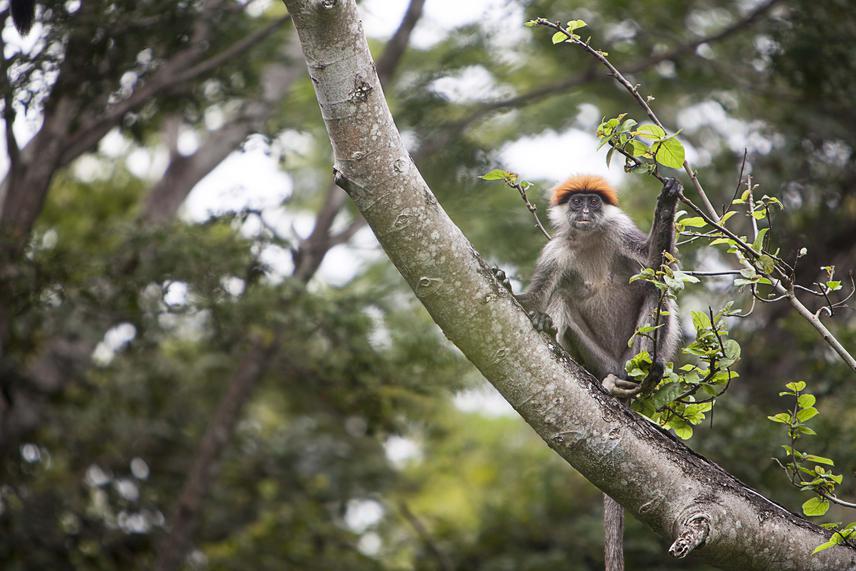Francesco Rovero
Other projects
12 Sep 2002
Conservation Biology of the Udzungwa Red Colobus and the Sanje Mangabey in the Udzungwa Mountains, Tanzania
24 Jul 2008
Ranger and Community-Based Monitoring of Biodiversity in the Udzungwa Mountains of Tanzania
2 Dec 2015
Udzungwa as a Model for Standardized Research and Monitoring of Biodiversity in Tanzania: Completing a Long-Term Capacity Building Programme
This project aims to consolidate ecological monitoring and research for anticipating population declines and boosting local capacity to respond to increasing threats in the Udzungwa Mountains of Tanzania, a global biodiversity hotspot.

Red colobus. ©Raffaele Merler
The proposed project will expand and consolidate the integrated research, monitoring and conservation programme that Italy’s Trento Science Museum established through its long-term presence in the Udzungwa Mountains of Tanzania. The project aim is to significantly enhance the local scientific capacity to monitor biodiversity that will be achieved by (i) consolidating the park-wide, ranger-based monitoring of large mammals and use the range of ecological monitoring activities as case-study for training and replication at local, national and (potentially) regional levels; and (ii) boosting an advanced and integrated research programme (ecological, genetic and physiological approaches) aimed at determining conservation status and predicting extinction risks of the Udzungwa red colobus, an excellent indicator species of ecosystem integrity.
In particular, the first component (local monitoring efforts) will achieve the following: complete the training of the National Park’s staff dedicated to ecological monitoring, from a number of rangers allocated to each of five ranger posts to refine the data collection protocols to the staff at UEMC/Ecology department that is responsible for compiling and analyzing data, and interpret results, in near-real time. It will use the excellent set-up of the UEMC and range of monitoring work to conduct ad-hoc training workshops for other forest parks in the country.
The second component will adopt multi-disciplinary research approaches to determine whether and how habitat fragmentation and human disturbance affect population abundance, genetic variation and physiological status of the flagship Udzungwa red colobus. Given the few ecological studies that have targeted this species, we can now address the ecosystem-wide, meta-population level of analysis by studying five major meta-populations across the whole Udzungwa range by (i) conducting the first complete population census, (ii) collect fecal samples for population genetic study and assessment of physiological states, and (iii) assess habitat and human disturbance factors.